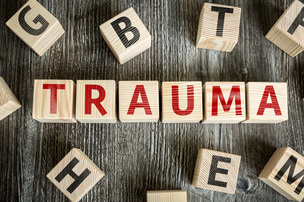 By Sarah Mudd, PLPC Freud was the father of psychology, which brought about a new wave of thinking in the field of psychology. Many theories evolved due to psychoanalysis and their influence can be felt in the field today. Two of the main aspects of Freud's theory include the interaction of conscious and unconscious thoughts and feelings.
Psychodynamics helps us see that all behaviors have underlying meaning. For example, I do my notes and research for clients, I do laundry at home. The meaning behind these behaviors is to properly treat my clients, take care of my family, and keep my household running smoothly. Clients' behavior also has meaning. Being late, missing appointments, acting aggressively or crying all have meaning behind them. The theory of psychodynamics helps us look deeper into the individual to truly understand what is happening. A missed appointment to a doctor could be a variety of possibilities: Being tired, not feeling like going, or not liking the doctor. By watching these underlying cues of others, we can understand them better than only hearing their story. Sarah Mudd is a Provisionally Licensed Professional Counselor at Unlimited Potential Counseling & Education Center in O’Fallon (MO #2016013189). Sarah is under the clinical supervision of Emily Kircher-Morris, LPC (MO #2012026754).
1 Comment
 By Sarah Mudd, PLPC, NBCCH, RASAC-II While I was in graduate school, one of my first assignments was to evaluate myself based on 5 dimensions of wellness. This assignment was an eye opener in many aspects and became a checklist I still live by today. I never considered having so many parts of myself were important to my well-being. Considering these 5 dimensions of wellness in your life may lead you on a track to a healthier lifestyle and feeling more fulfilled. Learning these components may take time, but try to consider and break down each dimension to start. In my personal experience, some dimensions were easy and others needed more work. The key here is not to try to have all the answers or conquer each dimension quickly, but take time to truly know yourself and work on areas where you may have trouble or are lacking. Exploring these areas can lead to enlightenment and a healthier you! The 5 Dimensions of Wellness are:
Sarah Mudd is a Provisionally Licensed Professional Counselor at Unlimited Potential Counseling & Education Center in O’Fallon (MO #2016013189). Sarah is under the clinical supervision of Emily Kircher-Morris, LPC (MO #2012026754).  In the movie American Sniper, we see a war vet struggling with post-traumatic stress disorder (PTSD). The flash backs, anger, and hypervigilance are lethal and need intervention. Since this disorder plagues so many (including, but not limited to, military veterans), it is usually the family members who come first seeking help on how to manage and deal with their spouse and/or parent symptoms. PTSD impacts the whole family system. Impairments of this diagnosis are similar to a ripple effect, harming not only the client struggling with PTSD, but causing family members or children to feel the sting as well. Because of my personal experiences dealing with post-traumatic stress disorder, I know more research needs to be generated dealing with the family and social aspects of this diagnosis. The person who suffers with PTSD has sometimes been taught to "pull yourself up by your boot straps and deal with it;" essentially "be tough.” If only it were this easy. As a counselor, I work with my clients to overcome the debilitating effects resulting from trauma. PTSD is a very serious disorder and is now starting to come to light in society today. Spreading the word, researching the disorder, and creating new treatments for these diagnosed individuals is the only way to improve their personal daily life. One of the biggest accomplishments I can make is enabling these individuals to be reintegrated back into a life they are comfortable living.
Remember, PTSD is not only seen in military veterans. Exposure to trauma (including abuse, neglect, sexual assualt, and other types of trauma) can trigger symptoms of PTSD. Some of the negative effects of PTSD may include:
Special care for the children of PTSD victims is also needed. “Children of veterans may also be effected, as evidenced by a RAND Corporation study of over 1,500 children in military families during 2008, which found that these children suffered from more emotional and behavioral difficulties than other American youth,” (Tsai, et al., 2012). Alarming as that statistic is, there may be even more children out there falling victim that have not been reported. When treating people with PTSD, my goal is to aid the person and family in about the disorder. We then process traumatic events using various research-based techniques. Some of these include systematic desensitization, relaxation and mindfulness, clinical hypnotherapy, and developing other coping strategies. If you or someone you know is suffering from PTSD, please seek treatment before it gets worse. Aiding in the trauma treatment, preventing social issues, and protecting family members are vitally important for people suffering from PTSD. Help is out there. The first step is to act. You could save someone! Sarah Mudd is a Provisionally Licensed Professional Counselor at Unlimited Potential Counseling & Education Center in O’Fallon, MO. (MO #2016013189). Sarah is under the clinical supervision of Emily Kircher-Morris, LPC (MO #2012026754). Tsai, J., Harpaz-Rotem, I., Pietrzak, R. H., & Southwick, S. M. (2012). The Role of Coping, Resilience, and Social Support in Mediating the Relation between PTSD and Social Functioning in Veterans Returning from Iraq and Afghanistan. Psychiatry: Interpersonal & Biological Processes, 75(2), 135-149. doi:10.1521/psyc.2012.75.2.135. |
Archives
August 2021
Categories
All
|

 RSS Feed
RSS Feed